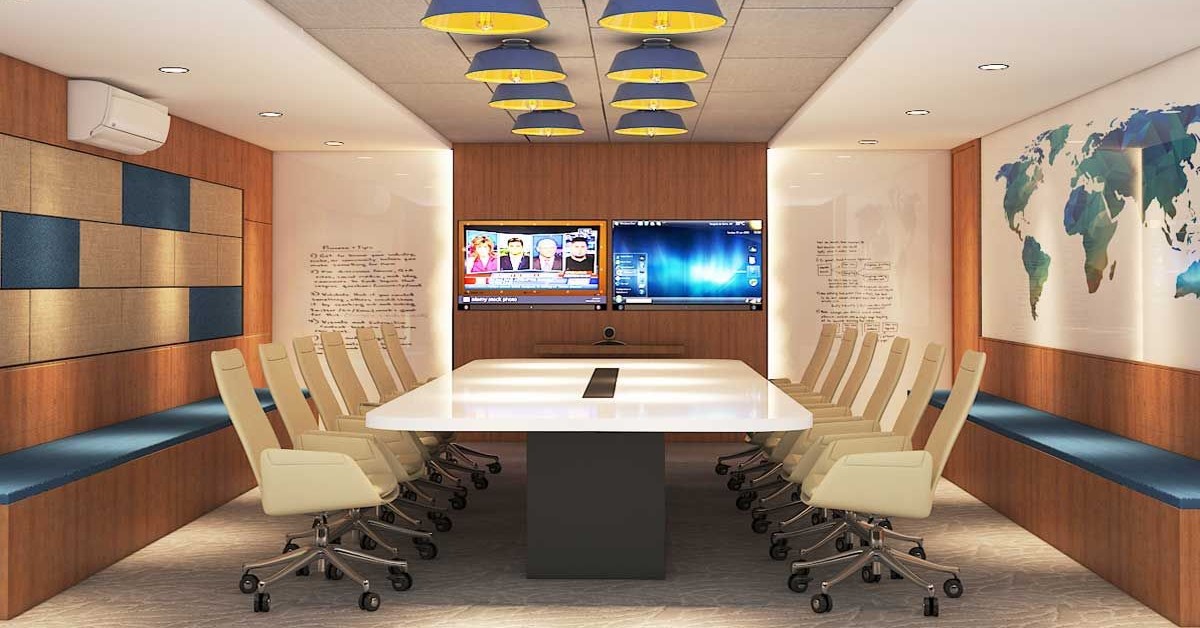Meetings
Booking Conference Rooms for NGO Events: Dos & Donts
Shyam Sundar Nagarajan / Reading Time : 5 mins

Table of Contents
- Why venue choice matters for NGOs
- How to book the right conference room (step-by-step)
- 1) Define the event format & must-haves
- 2) Search “near me” and build a shortlist
- 3) Validate no-show & double-booking safeguards
- 4) Lock the booking & confirm documentation
- 5) Plan realistic lead times
- Dos & Don’ts
- Accessibility & inclusion audit
- “Near me” playbook (India examples)
- Why GoFloaters is the best platform for NGO meeting room needs?
- Budget guardrails for NGOs
- FAQs
- 1) How early should I book?
- 2) What prevents double-bookings and ghost meetings?
- 3) What accessibility criteria are mandatory in India?
You’re organizing an NGO event—and the venue will set the tone for funders, volunteers, and beneficiaries alike. The right conference room can lift attendance, improve accessibility, and keep costs predictable. The wrong one can derail everything from AV to inclusivity. Explore this article to understand how meeting rooms can impact NGOs in organizing their discussions and events.
Key chapter:
Why venue choice matters for NGOs
Accessibility isn’t a “nice-to-have”—it’s core to mission delivery and legal compliance. The World Health Organization estimates 1.3 billion people (≈16%) live with significant disability, so your venue must accommodate diverse needs.
In India, the Rights of Persons with Disabilities (RPwD) Act, 2016 and the Harmonised Guidelines and Standards for Universal Accessibility (2021) set expectations for accessible built environments—ramps, signage, toilets, wayfinding, transport interfaces, and more. Build these checks into your booking flow.
Need help with choosing the right space?

Ajay
Sales expert
Ajay and his team have helped 100s of clients with the right spaces.





How to book the right conference room (step-by-step)
1) Define the event format & must-haves
Format: briefing, board meeting, training, donor roundtable, press meet, digital-skills workshop.
Capacity & layout: theatre, classroom, U-shape, cluster; minimum aisle widths for wheelchairs.
Accessibility: step-free routes, accessible toilets, hearing support, high-contrast signage.
Tech: screen size, hybrid VC, mics, speakers, backup power; reliable Wi-Fi.
Budget: hourly vs half-day/day; hidden costs (AV, catering, housekeeping).
Documentation: GST invoice details, vendor onboarding, indemnities if required by the venue.
Also read: How to rent a training room in India?
2) Search “near me” and build a shortlist
Platforms can save hours of phoning venues:
GoFloaters lists verified meeting rooms across India with instant booking and pay-as-you-go options via web and app. Use the city pages (e.g., Chennai) to find rooms by locality and capacity.
WeWork on GoFloaters offers hourly conference rooms with VC gear; India pages list on-the-go bookings with published starting rates.
Awfis on GoFloaters sells meeting-room bundles (e.g., 10–50 hours) and periodic promo codes that may help NGOs stretch budgets.
3) Validate no-show & double-booking safeguards
Ask venues/platforms about check-in + auto-release (prevents “ghost meetings” blocking rooms) and usage analytics (to learn from actual attendance). These are standard best practices in modern room-booking stacks.
4) Lock the booking & confirm documentation
Capture event title, agenda, time buffers, and accessibility needs.
Confirm AV test-run, hybrid VC, recording permissions, catering and cleanup windows.
Ensure GST-compliant invoice details are shared in advance (common ask for grants/CSR audits).
5) Plan realistic lead times
Large conferences can need months, but small to mid-sized NGO meetings at coworking venues are often achievable on shorter notice; still, give yourself a minimum of ~4 weeks to secure the slot, vendors, and sign-offs—especially in peak seasons. (Corporate/event sources widely recommend early locking of venues and timelines.)
Dos & Don’ts
Do | Don’t |
Prioritize accessibility (step-free routes, accessible toilets, signage, assistive listening). | Assume “new building = accessible.” Verify against India’s harmonised standards. |
Use platforms with instant booking, calendar integration, and check-in/auto-release. | Rely on verbal holds or manual spreadsheets. |
Add setup/teardown buffers to the reservation. | Book back-to-back with no cushion. |
Run an AV rehearsal (slides, audio, VC join links). | Test on the day of the event. |
Collect post-event feedback & usage data to refine future bookings. | Skip measurement—lose improvement opportunities. |
Accessibility & inclusion audit
Requirement | What to check | Why it matters |
Step-free access end-to-end | Ramps, lifts, door widths, tactile paths | Legal compliance; inclusion for wheelchair users. |
Accessible toilets | Proximity, dimensions, grab bars | Dignity, usability for many attendees. Refer to niua.in for standards. |
Wayfinding & signage | High-contrast signs; floor numbers | Low-vision support; reduces confusion. |
Hearing support | Mic/speakers; loop/assistive devices; captions in VC | Inclusion for hard-of-hearing participants. |
Emergency | Visible & audible alarms; evacuation chair plan | Safe egress for all. |
“Near me” playbook (India examples)
Use GoFloaters’ city pages to filter by locality and capacity (e.g., Chennai), then shortlist 3–5 spaces within 30–45 minutes of your participants.
If your NGO operates in tier-2 cities, check GoFloaters regional pages (e.g., Coimbatore) for verified, budget-friendly rooms.
For brand-specific centres (e.g., WeWork), validate commute and last-mile access before booking; India pages list on-the-go options.

Why GoFloaters is the best platform for NGO meeting room needs?
1) Breadth of choice vs single-brand Aggregators like GoFloaters (multi-brand) increase options across cities and price points; operator platforms like WeWork On-Demand or Awfis restrict you to their centres but offer consistent in-house standards and, at times, bundled hours or promos.
2) Cost structure If you run recurring trainings, Awfis bundles (10–50 hours) can lower effective hourly cost; for ad-hoc programs (donor meets, press briefings), pay-as-you-go via GoFloaters minimizes commitment.
3) Booking confidence & governance Check-in/auto-release and usage analytics reduce ghost meetings and help you justify spend to boards and CSR partners. Ask providers how they support this (policy + tech).
4) Accessibility transparency Whichever platform you choose, request photos/videos of access routes, toilet specs, and VC test slots. Cross-check against India’s harmonised guidelines before paying.
Need help with choosing the right space?

Ajay
Sales expert
Ajay and his team have helped 100s of clients with the right spaces.





Budget guardrails for NGOs
Scope creep: AV add-ons and extended hours inflate invoices—confirm inclusions.
Bundling: If you know your training calendar, explore hour bundles or multi-booking credits; if uncertain, stick to pay-as-you-go.
No-show policy: Ensure bookings auto-release if not checked in (avoid paying for unused blocks).
FAQs
1) How early should I book?
For small-to-mid NGO meetings, ~4 weeks is a practical minimum to secure rooms, vendors, and accessibility accommodations. Larger events need longer timelines; event-industry guidance emphasizes early venue locking.
2) What prevents double-bookings and ghost meetings?
Ask for meeting check-in at the room (tablet or panel) and auto-release if no one arrives. This frees up unused slots and protects your budget. Platforms like Robin and Microsoft document these patterns.
3) What accessibility criteria are mandatory in India?
Use the RPwD Act and Harmonised Guidelines (2021) as your baseline—ramps, toilets, signage, transport linkages, and ICT accessibility. Treat them as non-negotiables for inclusive events.
